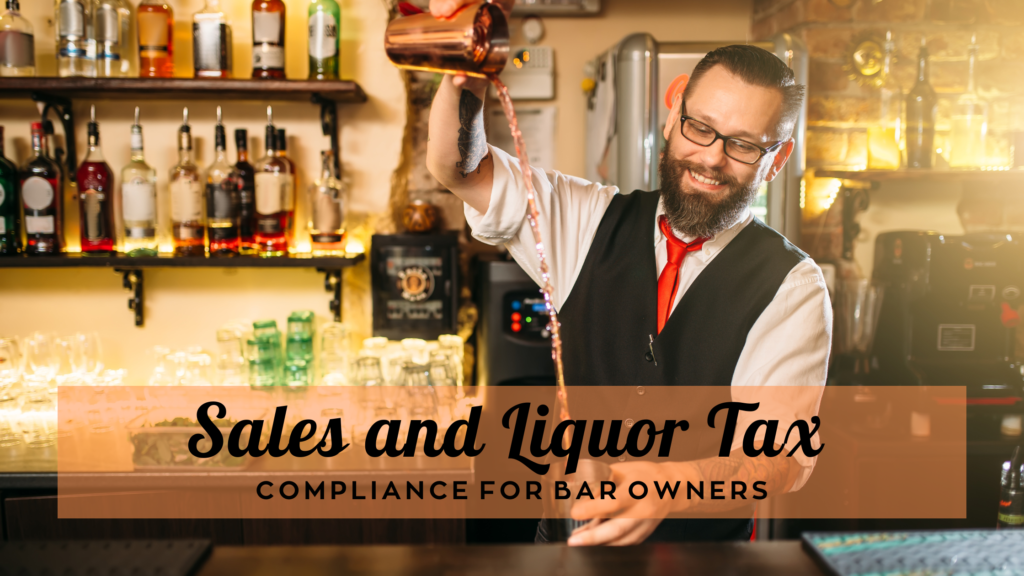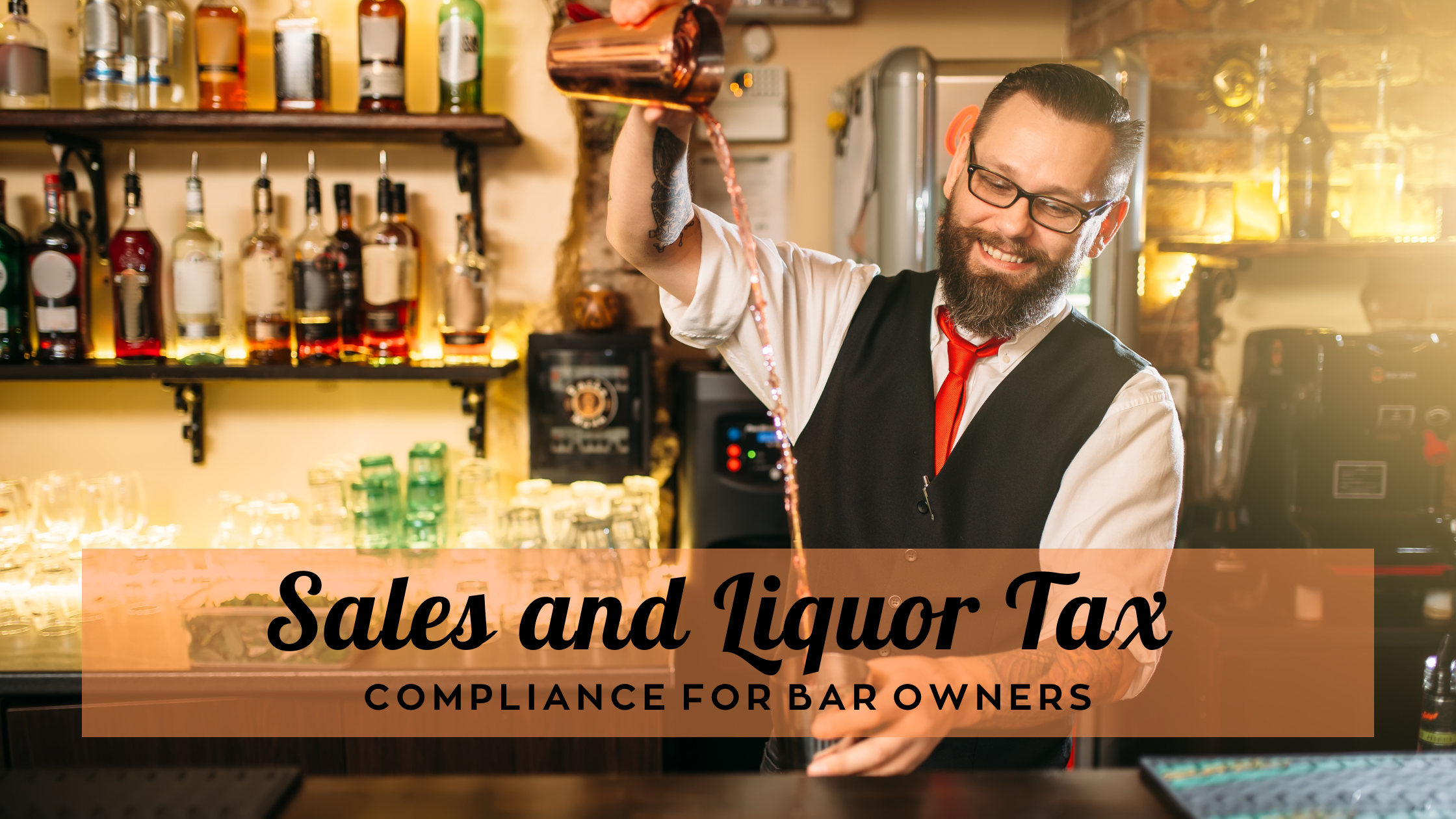
We know that running a bar isn’t just about mixing the perfect cocktail or curating a killer playlist. It’s also about navigating the often complex world of sales tax and liquor tax compliance. But don’t worry, we’re here to help you make sense of it all so you can focus on what you do best—creating an unforgettable experience for your patrons. Let’s break down the complexities of sales and liquor tax regulations and provide some guidance on how to stay compliant.
Understanding Sales Tax for Bars
First things first, let’s talk about sales tax. Sales tax is a consumption tax imposed by the government on the sale of goods and services. As a bar owner, you need to collect sales tax on the drinks and food you sell to your customers. Here’s a quick rundown:
- Know Your Tax Rate: Sales tax rates vary by state and even by locality. Make sure you know the exact rate you need to charge in your area.
- Taxable Items: Typically, alcoholic beverages and prepared food are taxable. However, there may be exceptions or different rules depending on your state.
- Include Tax in Pricing: Decide whether to include sales tax in your menu prices or add it at the point of sale. Be clear with your customers about which approach you’re using.
- Regular Filing: You’ll need to file sales tax returns regularly—monthly, quarterly, or annually, depending on your state’s requirements. Keep detailed records of all sales and tax collected.
Liquor Tax Compliance
Now, let’s dive into liquor tax. Liquor tax, or excise tax, is a specific tax on the sale of alcoholic beverages. This tax is separate from sales tax and comes with its own set of rules:
- Understand the Tax Structure: Liquor tax rates can vary significantly depending on the type of alcohol (beer, wine, spirits) and the quantity sold. Some states impose a flat rate, while others have a tiered structure based on volume.
- Licensing and Permits: Ensure you have the necessary licenses and permits to sell alcohol. Compliance with licensing requirements is crucial to avoid hefty fines or even the loss of your liquor license.
- Record Keeping: Maintain meticulous records of all alcohol purchases and sales. This includes invoices from suppliers and detailed sales records.
- Timely Payments: Just like sales tax, liquor tax must be filed and paid on time. Late payments can result in penalties and interest charges.
Practical Tips for Staying Compliant
Compliance can seem overwhelming, but with the right strategies, you can stay on top of your sales and liquor tax obligations. Here are some practical tips:
- Use Reliable POS Systems: Invest in a point-of-sale (POS) system that accurately tracks sales and calculates the appropriate taxes. Many modern systems can integrate with your accounting software for seamless tax reporting.
- Stay Informed: Tax laws and rates can change, so it’s essential to stay informed. Subscribe to updates from your state’s tax authority or consult with a tax professional who specializes in the hospitality industry.
- Regular Audits: Conduct regular internal audits to ensure that your records are accurate and up-to-date. This will help you catch any discrepancies early and correct them before filing your returns.
- Hire a Professional: Working with a bookkeeper or accountant who understands the intricacies of sales and liquor tax compliance can save you time and stress. They can handle the nitty-gritty details and ensure you’re always compliant.
Conclusion
Navigating sales tax and liquor tax compliance doesn’t have to be a headache. By understanding the basics, staying organized, and using the right tools, you can keep your bar compliant and avoid costly penalties. At Delightful Digits, we specialize in helping bar owners like you manage your finances with ease. Reach out to us for a free consultation, and let’s ensure your tax compliance is as smooth as your finest whiskey. Cheers to financial peace of mind!







